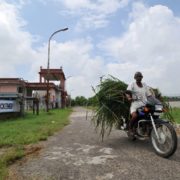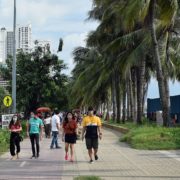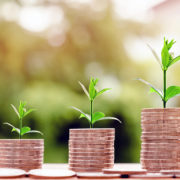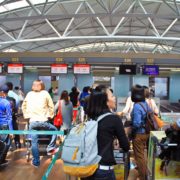Archive | Blog RSS feed for this section
Governance and public sector management, Health, Sanitation, Social development and protection, Water
 Governance and public sector management, Health, Industry and trade
Governance and public sector management, Health, Industry and trade
 Climate change, Finance sector development
Climate change, Finance sector development
 Economics, Finance sector development
Economics, Finance sector development
 Agriculture and natural resources, Economics
Agriculture and natural resources, Economics
 Climate change, Finance sector development
Climate change, Finance sector development
 Agriculture and natural resources, Climate change
Agriculture and natural resources, Climate change
 Economics, Governance and public sector management, Health
Economics, Governance and public sector management, Health
 Economics, Finance sector development
Economics, Finance sector development
 Economics, Finance sector development, Information and Communications Technology
Economics, Finance sector development, Information and Communications Technology

Top journal articles on sanitation reveal new policy insights

An examination of the published journal articles on development economics reveals a striking pattern—very few are devoted to the analysis of sanitation interventions and development. In a recent systematic review of all sanitation-related articles from the top-12 highest-ranking journals on development economics (Revilla et al. 2021), we attempt to understand the linkages between sanitation and development based on current qualitative and quantitative empirical work.
Rethinking the impact of the lockdown on micro, small, and medium-sized enterprises in the Philippines

The National Capital Region (NCR) and four provinces in the Philippines have returned to enhanced community quarantine (ECQ) since 29 March 2021 due to surging cases of the coronavirus disease (COVID-19). The ECQ is the strictest measure for prohibiting the movement of people for nonessential purposes and strengthening curfews. The Philippine government moved to the ECQ, or lockdown, to contain the spread of COVID-19 quickly after the pandemic was identified in March 2020.
ESG investment for promoting net-zero carbon emissions

ESG investment aims to encourage companies to consider environment (E), social (S), and corporate governance (G) issues by raising their long-term corporate value. It is becoming indispensable for filling the funding shortfalls needed to achieve the Paris Agreement’s goal of limiting the global temperature increase this century to well below 2 degrees Celsius above preindustrial levels, and desirably within 1.5 degrees Celsius, as well as to encourage the transformation of corporate behavior toward net-zero emissions.
Do persistent current account imbalances hamper regional and global growth?

Current account surpluses have persisted in a number of Asian and European economies throughout the global financial crisis and thereafter. Along with Germany, Japan has a decades-long history of recording current account surpluses. Due to rapid improvements in the competitiveness of its manufacturing sector, Japan has almost continuously recorded trade surpluses since the mid-1960s, and as a result, record current account surpluses (Shirakawa 2011).
Transitioning to high-value agriculture through cluster-based development

Income growth, urbanization, nutritional awareness, and supermarket revolutions in Asia are fueling demand for high-value agricultural products (HVPs), such as vegetables and fruits. This change in consumer demand can provide new agri-food market opportunities, which in turn can contribute to numerous Sustainable Development Goals through increased rural income, rural livelihood improvement, and rural poverty reduction.
Revisiting green bond market development in Viet Nam

Green bonds (GBs) are being used around the world as a financial tool for raising capital for projects that can benefit the environment (World Bank 2019). The money raised by GB issuances can fund investment in programs that enhance adaptation and mitigate the effects of climate change, such as projects for clean energy, public transport, and clean water. The GB concept was proposed by the World Bank in its Strategic Framework on Development and Climate Change in 2008 to help countries around the world raise capital for strategies for solving the problems of air pollution and global climate change (Trang 2015).
Autonomous adaptation: Community approaches to coping with climate change

Human activity is accelerating climate change, and those most at risk are vulnerable populations in developing countries that are already suffering from chronic poverty. These countries also tend to be ones that contribute only negligibly to climate change. The changing climate is waiting for no one—most of us have already experienced, read, or researched its impacts, and scientists have gravely warned of the consequences in the form of wildfires, droughts, floods, and landslides, among others.
Can closing borders shut out new COVID-19 strains?

In fighting the coronavirus disease (COVID-19) pandemic and, in particular, the new strains that are emerging, many countries have adopted the dual approach of closing borders and increasing domestic surveillance. This might be overkill. In fact, the latter might suffice.
Achieving resilient emerging market economies amid the macroeconomic challenges of the 21st century

Emerging market economies have faced a host of challenges in the post-global financial crisis (GFC) environment. The GFC environment was shaped by the confluence of four key developments. The first was financial globalization and de-regulation, processes that started in the late 1970s in Organisation for Economic Co-operation and Development (OECD) countries. These later spread to emerging markets in the 1990s and 2000s and transformed the global financial system into a complex cobweb of global networks, exposing countries to financial shocks transmitted by volatile bursts of capital inflows and outflows of “hot money.”
Fintech development transforming the financial landscape in the People’s Republic of China

Financial technology (fintech) is rapidly changing the financial landscape in the People’s Republic of China (PRC), with important implications for financial inclusion and macroeconomic stability (Huang 2020). Fintech in the PRC started at the end of 2004 when the mobile payment service Alipay first came online. However, fintech did not grow dramatically until 2013, when the online money market fund Yu’ebao started to receive investments from Alipay users.


Search
Subscribe / Connect to Asia Pathways
Subjects
- Agriculture and natural resources
- Blog
- Capacity development
- Climate change
- Economics
- Education
- Energy
- Environment
- Finance sector development
- Gender
- Governance and public sector management
- Health
- Industry and trade
- Information and Communications Technology
- Infrastructure
- Miscellaneous
- Population
- Poverty
- Private sector development
- Regional cooperation and integration
- Sanitation
- Social development and protection
- Transport
- Uncategorized
- Urban development
- Video Blog
- Water




Recent Comments